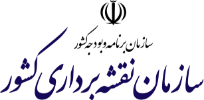National cartographic center of Iran in cooperation with the Secretariat of the Economic Cooperation Organization (ECO) held:
International Specialized Training Course for ECO Member States for 3 Intensive Days
International specialized training course for ECO member states on “Basics of Synthetic Aperture Radar(SAR), Remote Sensing” was held for three days, in the form of a webinar in English by the International Relations Office of NCC and ECO secretariat in cooperation with the General Department of Aerial and Spatial Surveying of NCC.


















comment